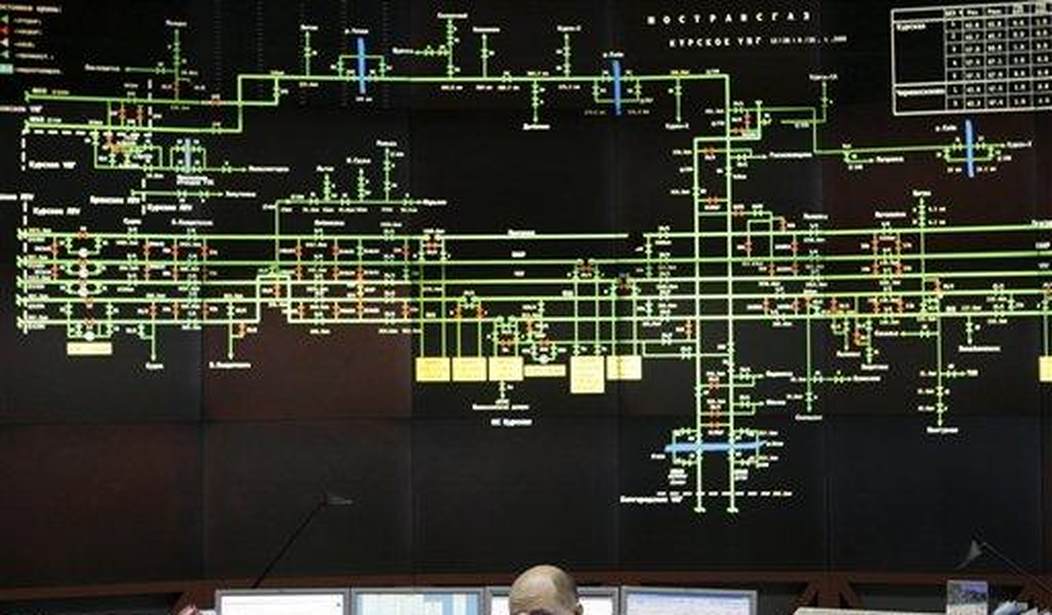It’s not completely clear whether Russia’s Nord Stream pipeline has a technical problem caused by a part trapped by sanctions or if Russia is using the broken part as an excuse to target European countries and create further division among western allies. The whole thing started Tuesday with a tweet from the Russian gas company, Gazprom.
— Gazprom (@GazpromEN) June 14, 2022
In short, Russia was cutting the gas supply from 167 million cubic meters per day to 100 million per day, about 40% less than normal. But Siemens, the German company that built the gas compressors used in the pipeline confirmed that there was a problem getting a turbine out of Canada and back into service.
Siemens Energy said a gas turbine that powers a compressor station on the pipeline had been in service for more than 10 years and had been taken to Montreal for a scheduled overhaul. But because of sanctions imposed by Canada, the company has been unable to return the equipment to the customer, Gazprom.
“Against this background we informed the Canadian and German government and are working on a sustainable solution,” Siemens Energy said in a statement.
But Germany’s vice chancellor and economic minister, Robert Habeck, didn’t seem to buy that explanation. He claimed Russia was cutting the gas supply for political reasons.
Habeck, who is also Germany’s economy minister and responsible for energy, told reporters in Berlin that he had established with the EU’s executive Commission that the maintenance of Siemens compressor stations on the pipeline isn’t subject to EU sanctions.
He said officials are in contact with Canada to check what is possible under Ottawa’s sanctions. But he added that, as far as German officials know, the first “relevant” maintenance session isn’t due until the fall, and because there are several such installations, that wouldn’t explain a 40% reduction.
“So I also have the impression that what happened yesterday is a political decision, and not a decision that is technically justifiable,” Habeck said. “What effect it has on the European and German gas market, we will have to wait and see. As a rule, suppliers have always succeeded in getting hold of gas from other sources.”
Today, Gazprom upped the ante by announcing a further reduction in gas deliveries which is said was necessitated by the need to overhaul another compressor on the line.
— Gazprom (@GazpromEN) June 15, 2022
So we’ve gone from 167 million cubic meters of gas per day as of Monday to 67 million cubic meters as of today, a drop of about 60 percent. Simone Tagliapietra, an energy policy expert located in Brussels, told the Associated Press the Kremlin was pursuing several political goals.
Tagliapietra said the Kremlin was pursuing several goals in order to undermine European unity and backing for sanctions against Russia.
One was short-term market manipulation to drive up gas prices, creating more stress on Europe and more revenue for Russia. Another goal, after the cutoffs to smaller countries, “is to remind the big countries that the gas is not to be taken for granted.”
“Russia never acts on a general level. It is always targeting individual countries, one by one, always to play this divide and rule strategy from the very beginning,” Tagliapietra. “This is a strategic game, this is not random.”
Russia has already cut off gas supplies to Poland, Bulgaria and Finland after they refused to pay in rubles.
Russia has halted providing natural gas to neighbouring Finland, which has angered Moscow by applying for Nato membership, after the Nordic country refused to pay supplier Gazprom in roubles.
Gazprom Export has demanded that European countries pay for Russian gas supplies in roubles because of sanctions imposed over Moscow’s invasion of Ukraine, but Finland refuses to do so.
It looks like there was an actual problem with a part stranded in Canada but that Russia capitalized on this true story to yank Germany’s chain and remind them there could be unexpected interruptions to the gas supply at any time for any number of reasons. It’s summer now and the gas supply isn’t so critical but if this were to happen 5-6 months from now it would be a much more serious situation. Germany uses Russian gas to heat homes during the winter. Having the supply suddenly reduced later this year could be deadly.







Join the conversation as a VIP Member